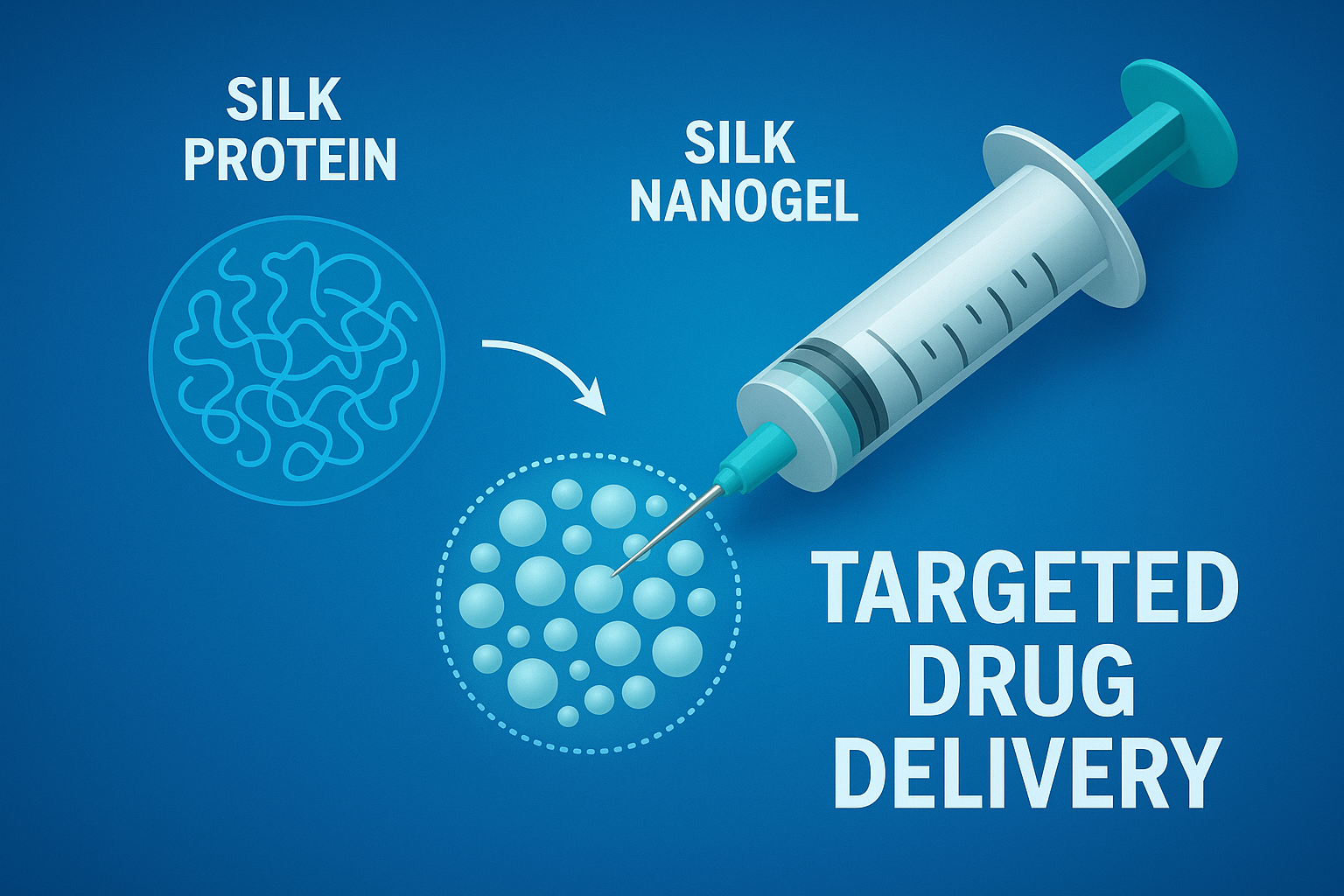A team of Indian researchers has secured a design patent for a silk nanogel injector that promises precise and localized drug delivery. The registration was filed on May 15, 2025 and approved on August 28, 2025, according to the Controller General of Patents, Designs and Trademarks.
The new injector uses silk fibroin nanogels, a biocompatible and biodegradable material derived from silk protein. These nanogels can encapsulate therapeutic agents and release them in a sustained and controlled manner. Experts believe this breakthrough will improve cancer therapy, wound healing, and regenerative medicine by reducing side effects and enhancing treatment efficiency.
The Innovation
Unlike conventional injectors, the patented device is designed to deliver drugs directly at the target site. This helps in minimizing systemic exposure. The researchers also highlight that silk nanogels can be tuned for different drug molecules, making the technology versatile for multiple therapies.
The Team Behind the Device
The project brought together scientists from leading institutions across India. Key contributors include:
- Padmalochan Hembram of Berhampur University
- Debabrata Mohanty of Xavier University, Bhubaneswar
- Manasa Kumar Panda of VSS Institute of Medical Research, Burla
- Laxmi Singh and Maheswari Behera of OUAT, Bhubaneswar
- Debasis Nayak of MSRCBD University, Baripada
- Yugal Kishore Mahanta of the University of Meghalaya
- Suprabhat Mukherjee of Kazi Nazrul University, West Bengal
- Ghanashyam Behera of Maa Manikeshwari University, Bhawanipatna
- Mehdi Rahimi, an international collaborator from Iran
Legal Protection
The design registration is valid for 10 years, with an option to extend for another five years. Under India’s Designs Act, 2000, this protection covers the device’s external configuration and design features. While patents safeguard technical functionality, design rights ensure exclusive use of the product’s appearance and structure.
A Step Towards Precision Medicine
The silk nanogel injector adds momentum to India’s growing innovation in drug delivery systems. Researchers are optimistic about its commercial potential in hospitals and clinics, where localized delivery can transform patient care.

